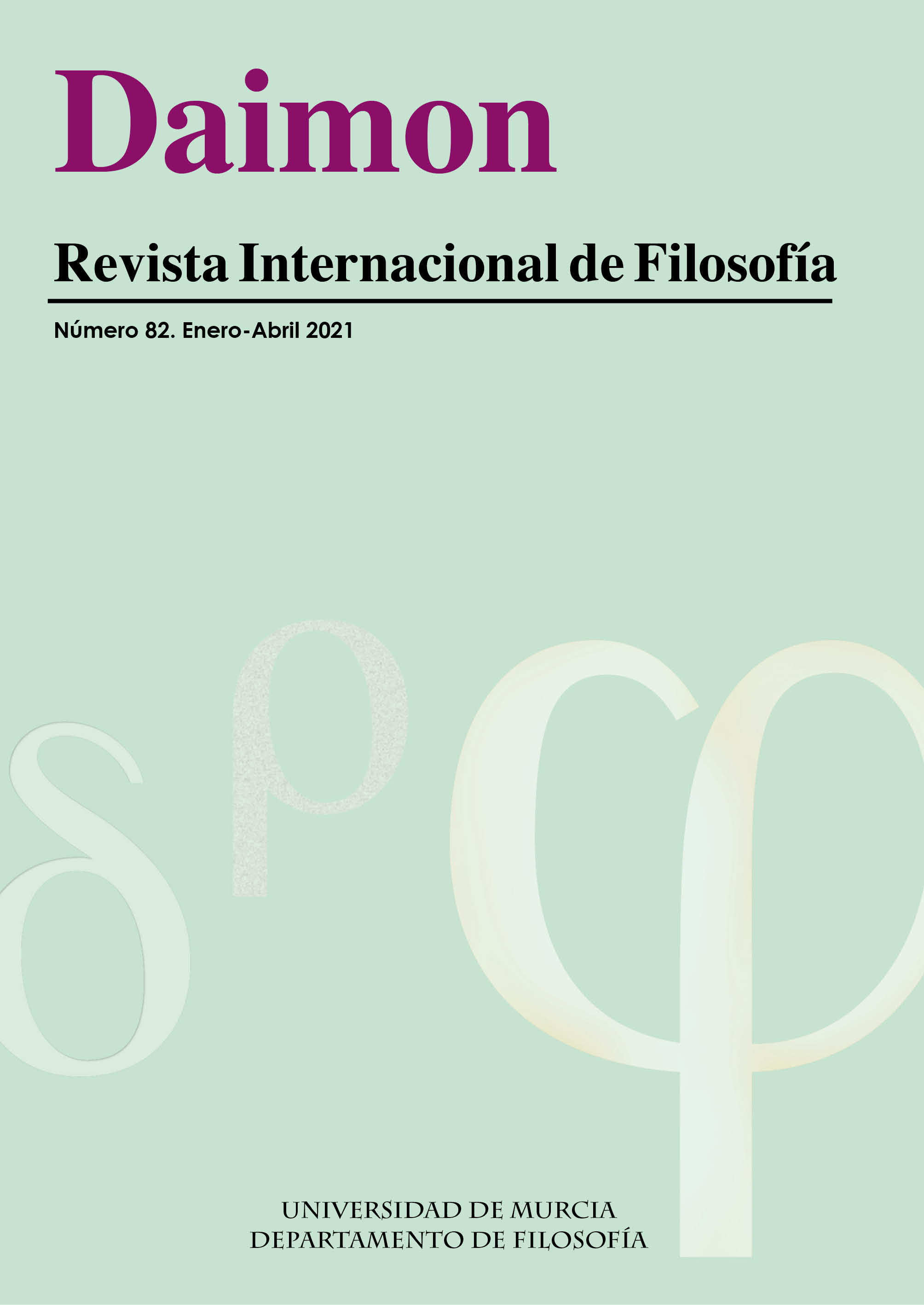Max Stirner and the politics of insurrection
Abstract
The aim of this article to outline a political theory of insurrection in Max Stirner’s thought as an ethical and political alternative to revolution. I will show that revolution is ultimately a failed strategy of emancipation as it does not free the individual from the forms of subjectivity that keep her dependent on power. Insurrection, on the other hand, can be seen as a rejection of the identities and roles that discipline the individual. In this regard, special attention will be paid to the Stirnerian concept of Eigenheit as an ethical strategy of self-determination and liberation from rigid forms of subjectivity. Ultimately, I will show how the whole political project of the Stirnerian insurrection is based on an ontological anarchism that rejects the teleocratic logic of modern rationalism and calls into question the very notion of realization.
Downloads
-
Abstract2003
-
PDF (Español (España))1495
References
Agamben, Giorgio (1996): La comunidad que viene, Pre-Textos, Valencia.
Agamben, Giorgio (2005): Profanaciones, Adriana Hidalgo, Buenos Aires.
Arendt, Hannah (1992): Sobre la revolución, Siglo XXI Editores, Buenos Aires.
Balibar, Etienne (1995): “Ambiguous Universality”, Differences: a journal of feminist cultural studies 7 (1): 48–72.
Bargu, Banu (2011): “Max Stirner, Postanarchy avant la lettre’, en Jimmy Casas Klausen and James Martel (eds.), How Not to be Governed: Readings and Interpretations from a Critical Anarchist Left, Lexington Books, Lanham MD, 103-122.
Brown, Wendy (1995): States of Injury: Power and Freedom in Late Modernity, Princeton University Press, Princeton.
Camus, Albert (1978): El hombre rebelde, Losada, Buenos Aires.
Castoriadis, Cornelius (1990): “Does the Idea of Revolution Still Make Sense?” Thesis Eleven (26): 123–38.
Evola, Julius (1973): Teoria dell’individuo assoluto, Mediterranee, Roma.
Evola, Julius (1981): Saggi sull’idealismo mágico, lkaest, Roma.
Ferri, Errico (1992): L’antigiuridicismo di Max Stirner, Giuffré, Milan.
Fleischmann, Eugene (1971): ‘The Role of the Individual in Prerevolutionary Society’, en Pelczynski, Zbigniew (eds.), Hegel’s Political Philosophy, Cambridge University Press, Cambridge.
Foucault, Michel (1979): Microfísica del poder, La Piqueta, Madrid.
Foucault, Michel (1988): “El Sujeto y el Poder”, Revista Mexicana de Sociología, (50)3: 3-20.
Foucault, Michel (1994): Hermenéutica del sujeto, La Piqueta, Madrid.
Foucault, Michel (2007): El nacimiento de la biopolítica. Curso en el College de France (1978-1979), FCE, Buenos Aires.
Jünger, Ernst (1963): Tratado del rebelde, Ed. Sur, Buenos Aires.
Kelsen, Hans (2009): Teoría pura del derecho, Eudeba, Buenos Aires.
Koselleck, Reinardt (2012): Historia de conceptos. Historia sobre semántica y pragmática del lenguaje político y social, Trotta, Madrid.
Leopold, David (2003): “A Left-hegelian Anarchism”, The European Legacy, (8) 6: 777–786.
Lyotard, Jean-François (1987): La condición posmoderna, Gedisa, Barcelona.
Marx, Karl; Engels, Friedrich (1974): La Ideología Alemana, Ediciones Grijalbo, Barcelona.
Marx, Karl (2006): Paginas Malditas. Sobre la cuestión judía y otros textos, Libros de Anarres, Buenos Aires.
Newman, Saul (2005): Power and Politics in Post-structuralist Thought, Routledge, New York.
Newman, Saul (2011): Max Stirner, Palgrave Macmillian, Londres.
Penzo, Giorgio (1981): Max Stirner. La rivolta esistenziale, Patron, Bologna.
Pessoa, Fernando (1990): en Teresa Rita Lopes (eds.), Pessoa por conhecer, Volumen 1, Editorial Estampa, Lisboa.
Proudhon, Pirre-Joseph (1937) Las confesiones de un revolucionario. Para servir a la historia de la revolución de febrero de 1848, Americalee, Buenos Aires.
Schürmann, Reiner (1986): Heidegger on Being and Acting. From Principles to Anarchy, Indiana University Press, Bloomington.
Sini, Carlo (1984): “Stirner, Nietzsche e l’ambiguità dellindividuo moderno”, en Pietro Ciaravolo (eds.), Nietzsche-Stirner, Editoriale B.M. Italiana, Roma.
Stirner, Max (1976): El Único y su propiedad, Pablos Editor, S.A., México.
Stirner, Max (2013): Escritos Menores, Pepitas de Calabaza, La Rioja.
Vaneigem, Raul (1977): Tratado de saber vivir para uso de las jóvenes generaciones, Anagrama, Barcelona.
Wagner, Peter (2001): Theorizing Modernity: Inescapability and Attainability in Social Theory, Sage, Londres.
Zizek, Slavoj (2001): El espinoso sujeto. El centro ausente de la ontología política, Paidós, Buenos Aires.
Las obras que se publican en esta revista están sujetas a los siguientes términos:
1. El Servicio de Publicaciones de la Universidad de Murcia (la editorial) conserva los derechos patrimoniales (copyright) de las obras publicadas, y favorece y permite la reutilización de las mismas bajo la licencia de uso indicada en el punto 2.
2. Las obras se publican en la edición electrónica de la revista bajo una licencia Creative Commons Reconocimiento-NoComercial-SinObraDerivada 3.0 España (texto legal). Se pueden copiar, usar, difundir, transmitir y exponer públicamente, siempre que: i) se cite la autoría y la fuente original de su publicación (revista, editorial y URL de la obra); ii) no se usen para fines comerciales; iii) si remezcla, transforma o crea a partir del material, no podrá distribuir el material modificado.
3. Condiciones de auto-archivo. Se permite y se anima a los autores a difundir electrónicamente las versiones pre-print (versión antes de ser evaluada) y/o post-print (versión evaluada y aceptada para su publicación) de sus obras antes de su publicación, ya que favorece su circulación y difusión más temprana y con ello un posible aumento en su citación y alcance entre la comunidad académica. Color RoMEO: verde.











